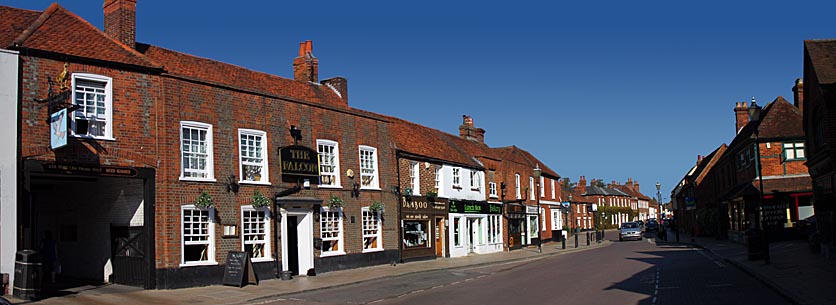 |
 |
|||
|
|
Theale Coaching Community
The name Theale is a simple Saxon word meaning 'plank'. It may have referred to a plank bridge over the River Kennet, or possible to a plank-built hall where the local Hundred Court met, for Theale has been the centre of one of these ancient administrative units since before the Domesday Survey (1086). Despite the fact that the modern Reading suburb of Beansheaf Farm is further east in Calcot, the original manor house of Beansheaf stood just outside Theale, more-or-less beneath Junction 12 of the M4 motorway. It was named after the Beansheaf family who appear as jurors in Reading as early as 1241. It was later a very minor manor of the Stonors of Stonor Park (Oxfordshire) and the Vachells of Coley Park. After the First Battle of Newbury, the Royalist army fled back to Oxford as soon as possible. Prince Rupert, and his cavalry officers, were not best pleased and, at a council of war, he punningly declared that "Although the Roundheads are marching into Reading, we will make calves of them before they come into Veale". The prince was as good as his word and there was indeed an armed skirmish at Theale shortly afterwards. Many soldiers died in the fighting that ensued and their bodies were later buried in Dead Man's Lane. Being a wayside settlement along the Bath Road, originally in the parish of Tilehurst, it is not surprising that Theale was famous for its coaching inns. There were not only coaches on the road though. Dick Turpin is said to have hidden out many times in a secret room in the Old Lambe Inn at Theale. Later, in 1809, the roundabout just south of the town was the scene of a daring highway robbery. A certain horse-dealer from Hungerford, named Hazell, fell into conversation with a fellow rider on the road, while on the way to Henley Fair. Shortly after the two parted company, Mr. Hazell found himself being robbed by the same man and a masked accomplice.
|
|||
| © Nash Ford Publishing 2001. All Rights Reserved. | ||||



